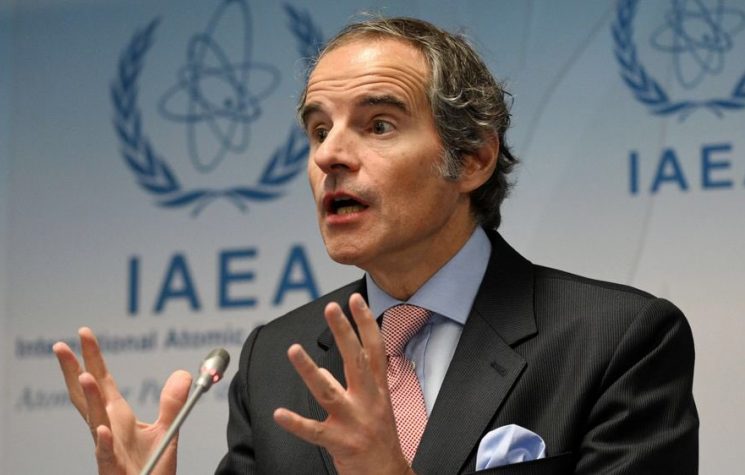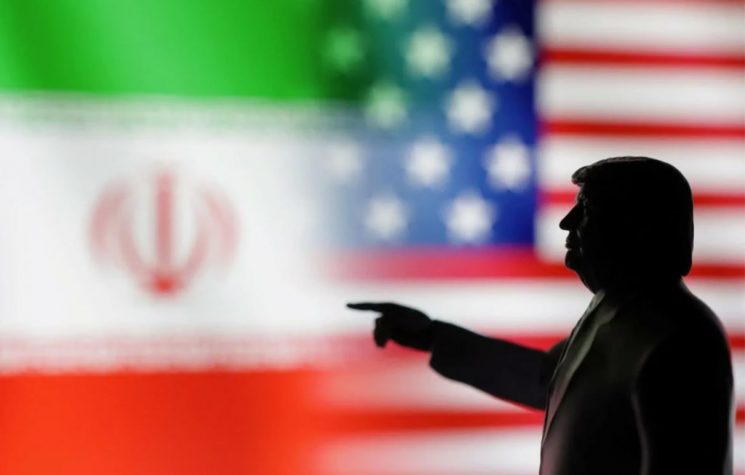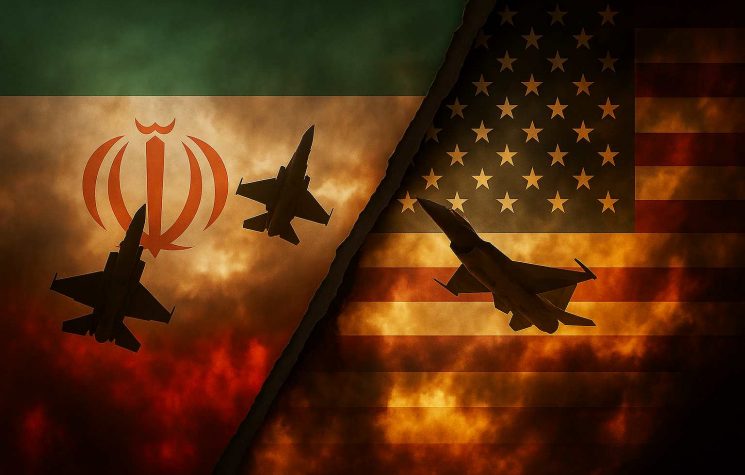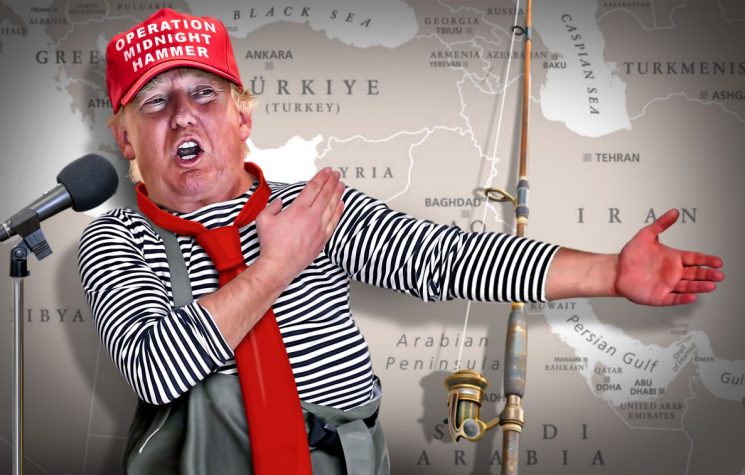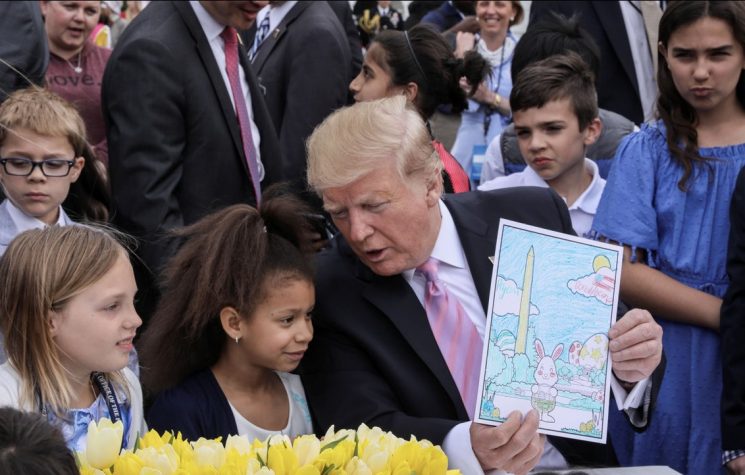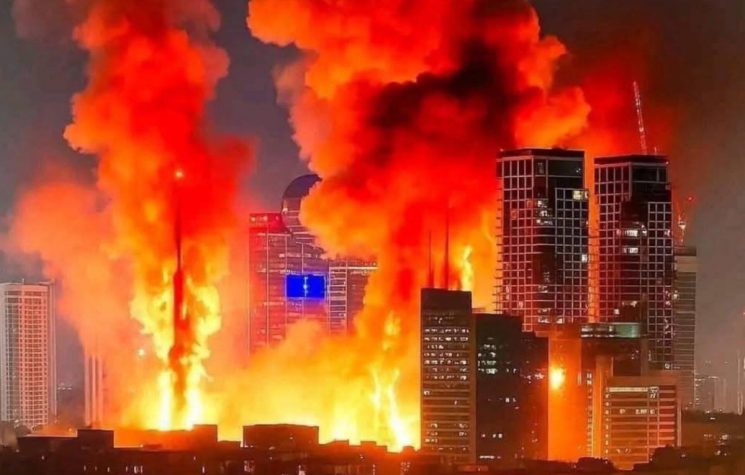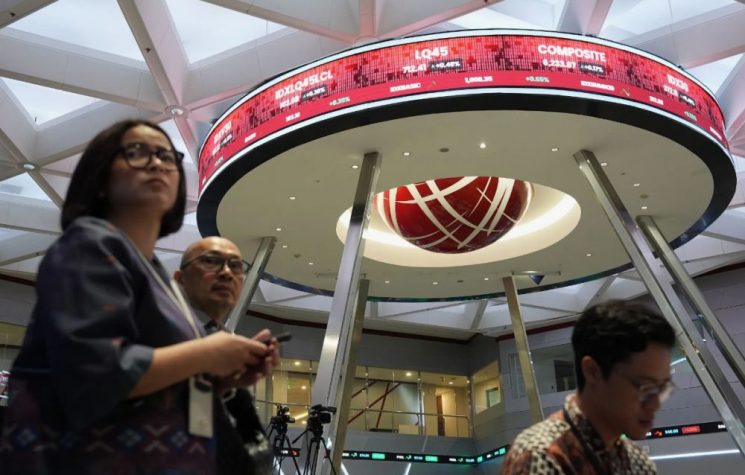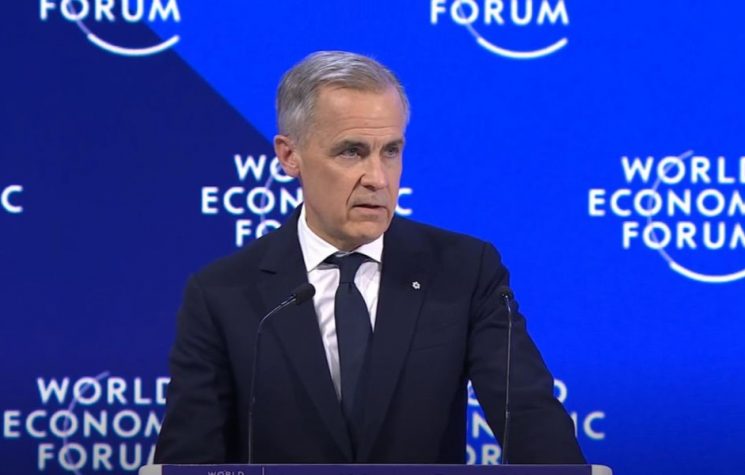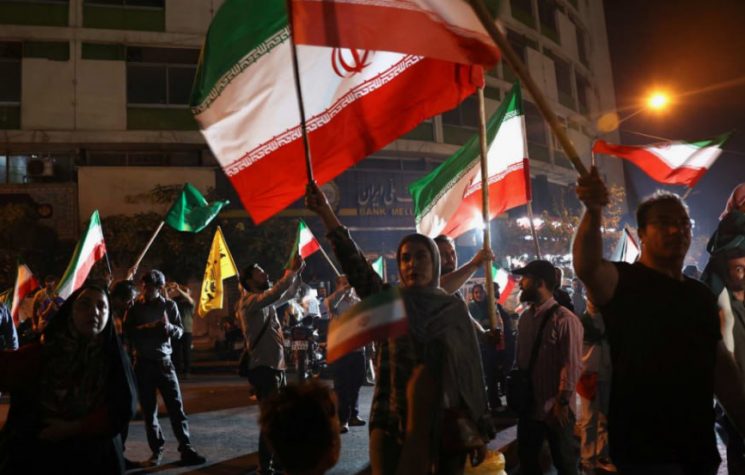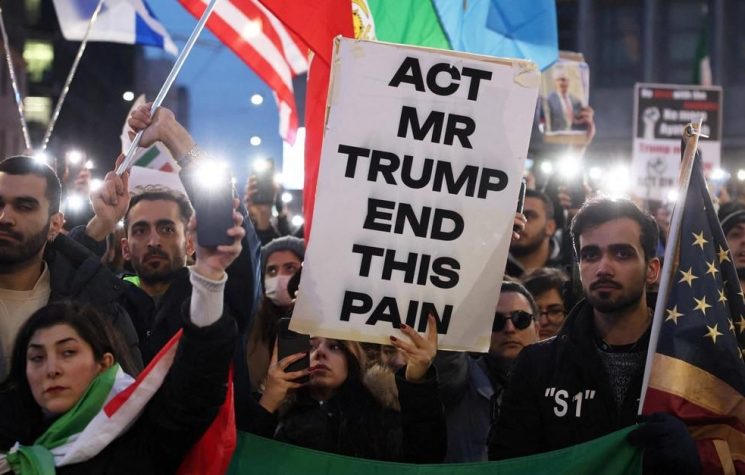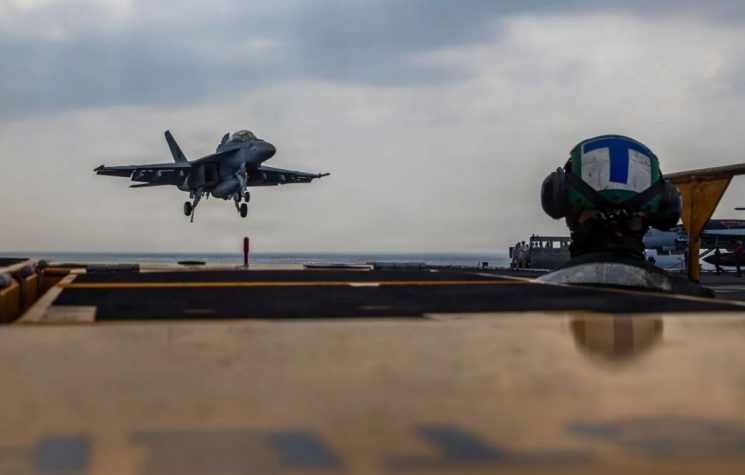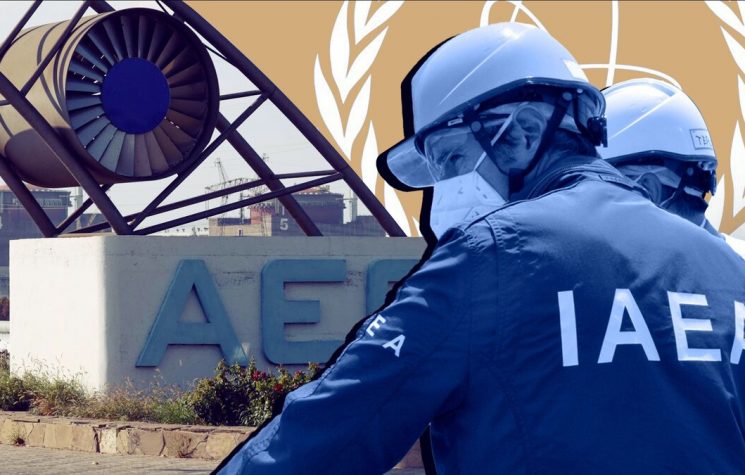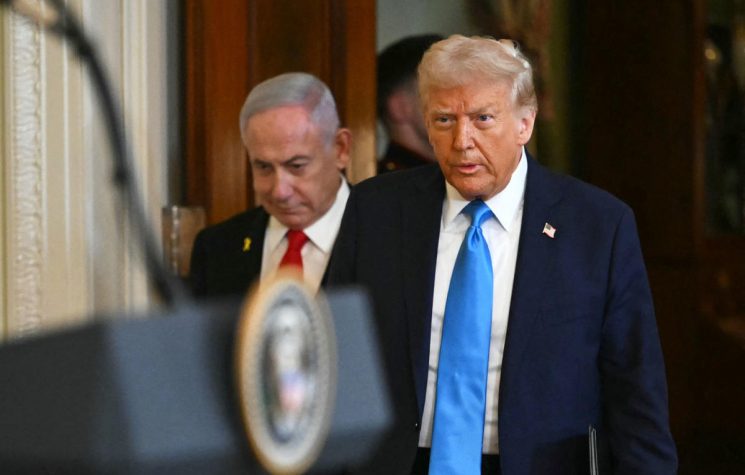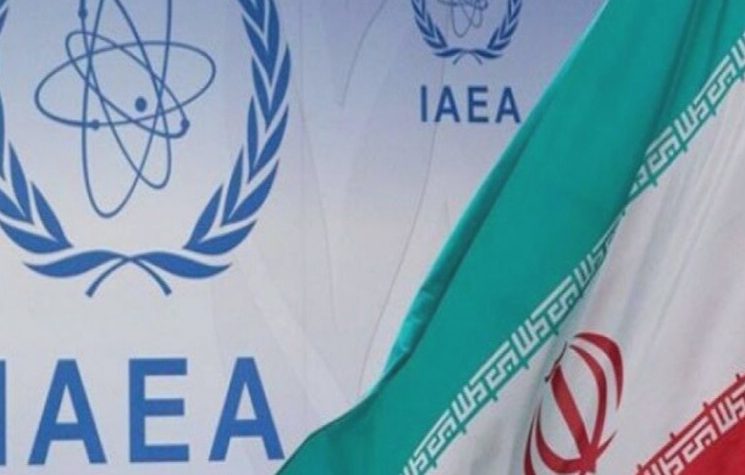We’ll see the scenes from the next chapters, but the war is just beginning, and it already has a loser. The usual one.
Join us on Telegram![]() , Twitter
, Twitter![]() , and VK
, and VK![]() .
.
Contact us: info@strategic-culture.su
Will there no longer be wars like in the past, where the victorious side was easily identified? The truth is, considering the statements and propaganda from the three main contenders involved in the conflict sparked by Israel, something unusual has happened: all parties have declared themselves winners!
Before analyzing the relative positions of each contender, we must establish the following preliminary points:
- This ambiguity in how we classify the outcome of the dispute for each party is typical of the intermediate moment we find ourselves in.
- Consequently, each party’s assessments suffer from the partial way they analyze the event, focusing on the relationship between their starting point and their self-defined endpoint. The problem is that the “endpoint” not only differs for each party but also the outcome—the dialectical synthesis of the Israel-US/Iran-Islam-BRICS contradiction—remains unpredictable at this stage. None of the parties can claim to have reached or know the final result.
In this sense, everyone settles for tactical advantages, more or less significant. In this context, all can claim victory because we are still in that intermediate phase where advances, retreats, losses, and gains are not only mutual but can also be overvalued by some at the expense of others. When the final reckoning comes, this ambiguity will disappear—only to resurface later.
Let us remember that even in the embryonic phase of the Ukraine war, the entire West claimed victory. On the other side, the Russian Federation did the same. As the conflict evolved and its fundamental components became clearer, it became increasingly difficult for the parties to ambiguously classify their positions. Today, it is undeniable that the Russian Federation holds a significant advantage, and the West is beginning to admit defeat. The warmongering and militaristic paranoia gripping the European Union stems from this desperation caused by the looming sense of defeat, now impossible to hide.
No matter how much the conflict between Iran and the US/Israel is frozen, no matter how much the final escalation is avoided, there will come a moment of reckoning. Until then, everyone will claim victory—until they can no longer do so.
A conflict that did not begin now, but 78 years ago
This conflict took decisive shape—became inevitable—with the Nakba in 1948 and continued with the establishment of the state of Israel in 1948. The shockwaves from the occupation of Palestinian territories and over a century of Western intervention in the region inevitably led to events like the Islamic Revolution, secretly supported by the US and UK at the time. In 1979, the most powerful contender the West and Israel would face in their hegemonic dominance of the Middle East was born. A contender hardened by decades of sanctions, regime change attempts, a brutal war waged by the US and Saddam Hussein, and constant sabotage, boycotts, and corruption on its soil. As the saying goes, what doesn’t kill you makes you stronger.
Sherman Narwani of The Cradle aptly notes that this US intervention marks a new moment in Western Asia, signaling the end of “proxy wars.” In her assessment, in a conventional war, with boots on the ground and considering geographical advantages, Iran is a peer to the US.
This time, we witness an empire already stripped of its rings, now forced to sacrifice its fingers. Lacking a suicidal country whose elite would throw itself against Iran in the name of “democracy and human rights”—as others did, like Iraq, always with disastrous results for themselves—and with the Arab emirs paying in oil and petrodollars to be left alone, the US oligarchy had to turn to its prodigal son and its resources to attack Iran. This was done under the assumption that if things went badly for Israel, the outpost could always count on the big brother (literally, figuratively, and in the Orwellian sense).
In Ukraine, NATO and the US also found it necessary to get directly involved in the conflict, even if masking—with Russian consent—this intervention with “contractors,” “technicians,” “consultants,” and the like. The example of Georgia, among others, shows that the Ukrainian example is being studied in the region, just as the Syrian, Libyan, and Iraqi ones were. With the rings gone, it’s time for the empire to use its fingers.
Trump pushed, and Grossi became the AIEA and NPT’s executioner, creating the justification to prolong the conflict, whether cold or hot
In this process, we also witness the end of the multilateralism inherited from World War II. The truth is that Grossi did not want for himself the same fate as Scott Ritter, the inspector who, at the time, certified to the world, to Congress, against the CIA, against Biden (in the Senate), and George W. Bush that there were no weapons of mass destruction in Iraq. Mariano Grossi kept the doubt alive, in a clumsy manner only climbers know how, and just as in the NPP Energodar case, where he claimed not to know where the drones came from, this time he adopted the same petty and biased attitude—unthinkable for someone representing an institution with such enormous responsibility.
At the helm of an agency meant to prevent the world from ending in nuclear holocaust is someone who couldn’t even demand that Israel admit its nuclear facilities be monitored by the organization he claims to lead.
Grossi thus became the chief executor of the destruction of the Nuclear Non-Proliferation Treaty and the International Atomic Energy Agency. His reluctance to issue a simple note stating—even without condemning—that Israel was violating international law by bombing nuclear facilities monitored by the IAEA has already borne its first fruits: the Iranian Parliament has just determined that the IAEA and its inspectors will no longer monitor Iran’s nuclear program.
We’ll see if Mr. Grossi has also managed to justify an all-out war against Iran, as we’ll explore later! Israel will hardly miss the opportunity presented by the absence of “independent” monitoring, and the US will have to step forward, this time definitively. And when that time comes, victories or defeats will no longer be tallied by the parties themselves but by others.
The victory, as told by Trump
It’s worth noting that the US has two heads in this case. The tension between Trump and the deep state is nothing new. Hence, Trump implied that he only did what he did because he was forced to. And it’s not hard to find evidence pointing in that direction, such as Trump’s claim that everything is over and the nuclear program is dismantled. Meanwhile, the Pentagon and think tanks say otherwise—that the damage is limited and the program could be restored in just two months.
So, we can say Trump claimed victory, believing he could go in, drop some MOPs (Massive Ordnance Penetrators), satisfy the neocons (the ones commentator Diana Soler from CNN Portugal says don’t exist), and carry on with business as usual. Like no one else, he praised the Air Force and military command, perhaps hoping to fill them with pride so they’d stop bothering him with war. But what happened is that while Trump claimed victory, the US establishment did not and is deeply reluctant to accept that it’s all over. Thus, we have a bicameral and ambiguous stance from the US, where the President claims victory, but the structure, while not admitting defeat, doesn’t consider itself victorious either.
Trump’s victory is easy to understand and is tied once again to his starting point, his relative position, and his objectives for the conflict. Trump faced a US economy growing below expectations, with anemic industrial growth contradicting MAGA expectations, a weakening job market (which in the US is critical due to the lack of a public support network), rising debt, a falling dollar, and a flight to gold. Promising his base he would govern domestically, it’s easy to see what victory would mean for Trump: containing escalation and preventing economic moves that increase inflation and further degrade the dollar.
To achieve this, Trump had to appease the neocons and Zionists, let them savor a taste of victory—always drenched in blood—and impose conflict containment, however fragile, to keep Iran from closing the Strait of Hormuz. In his mind, Trump achieved all three. To do so, he had to play a risky game and join Netanyahu’s voluntarist and adventurous gamble. The risk is enormous, and we’ll see if Trump can contain it. For now, the messages he’s sending show that the risk was indeed very high and that a Pandora’s box has been opened with his consent.
Why did Trump, assuming he doesn’t want a prolonged war, take such a risky gamble? First, his Zionism; second, the pressure from the military-industrial complex; and finally, the tactical “victories” he could extract.
The first of these tactical “victories” would be a bite at China’s energy and commercial sustainability. It’s known that 90% of Iran’s oil and gas go to the People’s Republic of China. It’s not without scorn that Trump said, “Now Iran can go back to selling oil to China,” as if saying, “Go ahead, try it with everything in ruins.” It’s not hugely significant, but it’s a provocation won by Trump’s rules.
Moreover, regarding this aspect, Trump and his strategy for the US gain another thing: passing the idea that whenever they want, they can destroy Iranian infrastructure, which is critical for the BRI, BRICS, China’s energy sustainability, and its influence in the region. And the heads of Trump and the neocons believe this with such vigor that some quickly claimed that BRICS watched Iran’s destruction and did nothing, that Russia and China didn’t defend their ally… In communication terms, Trump pushes the idea that they are the greatest and no one dares confront them. At the same time, he fears the economic effects a high-intensity war could have.
Additionally, Trump and his US gain something else very important from this whole theater: not only did they withdraw significant equipment from Ukraine, distancing themselves further from that cancer they created and fed with European fanaticism and subservience, but they also produced a war film that heightens the European elites’ sense of insecurity and provides yet another threadbare justification for European “leaders” to bow their heads and accept, as seen (except Spain), investing 5% of GDP in armaments. Considering the EU cannot produce such quantities of weapons, it’s clear where they’ll buy them.
Trump also extracts other important personal victories from this:
- Demonstrates that European “leaders” are mere executives serving Uncle Sam and, like any CEO, their art is limited to being good subordinates.
- Surpasses Biden’s moral barriers and establishes as state policy that NATO is nothing more than a weapons supermarket for Europe.
- Shows that Trumpism is no more harmful to American society than the radical centrism of European “leadership,” capable of stripping health, education, housing, and justice from the people they claim to represent, to hand the resources over to Trump.
- The path pursued by radical centrism will lead to the victory of Trumpism in Europe, as it won’t fail to exploit the contradictions raised by governments that promise one thing and deliver another.
- Trump presents himself as the plenipotentiary of US policy, a kind of pharaonic, messianic leader of divine origin.
Of course, it’s not all victories for Trump, but I’d say that, given his personal needs and foreign policy goals, facing the threat of his support base disintegrating, Trump comes out quite well from the risk he took. For now, at least!
We can’t argue that the destruction of the 20th century’s multilateral institutions is a defeat for Trump, because Trump doesn’t respect them or seem to count on them. As pillars of yesterday’s soft power and tentacles of a globalist vision, Trump considers them obsolete. Trump’s vision is brute force as a factor of negotiation, somewhat like torture: don’t accept? Lose a finger! And Trump, in his perspective, cut off Iran’s hand. The destruction of the multilateral architecture proposed and built by the US after World War II is a long-term defeat for the US, but for Trump, given his strategy for the US, the value of this structure is negligible. In my view, he’ll regret it later. And he’ll discover that for victims, hands aren’t as important as they are for aggressors. Fighting for causes means fighting with everything! Neither the US nor Israel, addicted to comfort and luxury, weakened by their own limited wars, will have an easy life in an open conflict with a conscious and united people like the Iranians.
For Trump, like a pharaonic emperor who nullified Congress and the representative power structure of the US (another personal victory), reinforcing what Biden had already done—that the democracy that once existed is dead and buried (see what Bruce Springsteen said on the matter)—power is transactional and imposed through a relationship of forces built with trump cards. For globalism, trump cards were only played when the bluff of democracy and human rights failed. Trump dispenses with all that. He’s in a hurry and needs quick results to convince his base, possibly expand it, and who knows, through many twists and turns, secure a third term. How? We’ll see.
But don’t think it’s all over, because that would be a mistake in a conflict that gained its strongest contender in 1979 with the birth of the Islamic Republic of Iran, which from the outset proclaimed its intent to end the Israeli occupation. Assuming that Trump himself would define the terms under which everything unfolds is premature. Trump and the US initiated a process that, if Iran plays its cards well, will see the Persian nation have the final say on where the conflict ends.
We also can’t rule out that Trump may have realized in all this that the attack on Iran was a trap set to entangle and directly involve the US. Even knowing this, he took the risk and let Israel drag the big brother into a mortal conflict to defend it. Whether he participated willingly or reluctantly, Trump can, for now, content himself with the result, but the uncontrollable future will come back to haunt him later.
Israel, the biggest loser, went further and declared all objectives achieved
For Netanyahu, there was no doubt: the Iron Dome let nothing through, and all objectives were hit! Meanwhile, he censored the media, social networks and imposed draconian rules on anyone who disclosed the damage caused by Iranian missiles that never penetrated the Iron Dome.
Israel indeed suffered damage it had never experienced before. It’s also true that, no matter how small and concentrated its territory is, Iran only attacked strategic and military targets. Like Iran, Israel has more infrastructure underground than above, and that infrastructure doesn’t seem to have been affected. No matter how scared the Israelis were—as never before—the truth is that, in its power, Iran’s attack was not brutally inhumane, as Israel’s was. Israelis haven’t truly experienced what it’s like to see their civilian targets turned into military ones because reservists are there, as Israel does. In an unbridled conflict, Iran won’t hesitate to escalate, and then no one will be able to hide it.
For fanatics, enemy humanity is interpreted as weakness. In True Promise 1 and *2*, Iran limited its attacks to mere demonstrations. Just as Russia did in Ukraine with its special military operation, sparing civilians when possible and basic infrastructure. For neo-Nazis and Zionists, such behavior is seen as coming from the weak or the resource-less. The neo-Nazi regime in Kiev seems to have realized it was wrong, but Netanyahu hasn’t yet.
In Israel’s case, we must also distinguish Netanyahu’s personal objectives from those of the Zionist outpost. Israel, the territory, only lost with this attack on Iran. Its people emerged with a sense of insecurity and persecutory paranoia that will continue to be taken out on Palestinian children, the elderly, and women—especially now that a military patent has recognized that the pace of Hamas’s annihilation isn’t yielding the desired results. But Netanyahu bought time, especially when summoned to appear before the ongoing Supreme Court trial. The state of emergency could be invoked to keep him in power.
According to Netanyahu and his cronies, Israel achieved:
- Delaying—or annihilating—Iran’s nuclear program unequivocally.
- Delaying Iran’s industrial development, just as the railway linking China to Tehran became operational.
- Dragging the big brother—the US—into a regional conflict of unpredictable proportions, ensuring Trump would follow his adventurism and not the other way around.
- Committing genocide in Gaza, where Harvard already speaks of 377,000 missing Palestinians, while receiving unconditional support from Europe, concluding it has a red carpet to continue.
Of course, this sense of “victory” can’t be total or true. The attempted regime change didn’t happen—quite the opposite—but Netanyahu says nothing about that, which can’t be interpreted as giving up. Nor has it been proven that the Israeli Air Force had as free movement as claimed: the blogger “Simplicius The Thinker,” who offers some of the best military analysis I know, says there’s only one video of an Israeli plane flying over Iran, in a peripheral city, provided by the Israelis themselves. We also know many of the attacks Israel claims were carried out with drones were launched from within. This demonstrates what we already know: the Mossad has a brutal capacity for social infiltration, which isn’t a victory in this case. Iran took the opportunity to purge collaborators and traitors.
Despite knowing the inefficiencies of the Iron Dome and Arrow systems, and the fear of running out of interceptors, Netanyahu and his apparatus add more objectives to their list. For those who want regime change, delaying Iran’s development means buying time to capitalize on the social contradictions that arise in stagnant societies unable to meet their people’s needs. Since Iran’s nuclear program means cheap and clean energy, its delay will bring economic difficulties, which Israel (and the US) won’t fail to exploit. We’ll see how damaged the program is, how long it takes to restore, and what happens when it is.
As we can see, Israel’s supposed “victories” are conditional, ephemeral, and merely temporary. None are truly definitive, and none represent anything new beyond what we already knew: Mossad’s capabilities; Netanyahu’s adventurous and suicidal fanaticism; his desire to stay in power; and US protection.
However, let’s not forget: often, declared objectives don’t match actual ones. Did Netanyahu aim to destroy Iran’s nuclear and missile programs and change its regime, or was he more concerned with dragging the US into confrontation? In the first case, he can’t claim victory, but in the second? Did he succeed or not? Does anyone doubt Netanyahu is convinced of victory over Iran with the US by his side?
This means we must read all directions, declared and visible, as well as invisible and unspoken, in a conflict. What can’t be confessed may be a more important victory than what’s declared. And if there’s someone twisted, cynical, and obstinate—equally messianic—it’s Netanyahu. If we all know he was behind the destruction of several states, the manipulation of others, and the annihilation of millions, how can we doubt his effectiveness or his ability to pursue objectives?
Balance is key in these things. The Syrian example should stay with us all. One day, Israel was surrounded, and then it wasn’t!
Iran declares victory by surviving
Iran wins because it survived an attack by two brutal and powerful armies—arguably the most powerful and murderous in human history. Victims win when they survive attacks aimed at annihilating them. Those who fail are defeated!
Iran managed to inflict damage never before seen on Israel, creating doubt in Israeli society about Netanyahu’s strategy. For now, Iran resists, despite greater losses. But a country hundreds of times larger than Israel has a much greater capacity to absorb damage. Moreover, Iranian society is hardened by decades of Western aggression, producing levels of resilience and consciousness far higher.
The Iranian people’s consciousness is also what allows its leadership to claim victory. If the enemy wanted to discredit the regime, it achieved the opposite. The examples of Iraq, Libya, Syria, and Ukraine are vivid in everyone’s memory, especially Iranians, who live next to Iraq, a Shia-majority country like Iran, which, once targeted for regime change by external forces, never recovered.
The truth is that even the factions of Iranian society that don’t identify with Al-Khamenei’s demo-theocratic regime—except those corrupted by Mossad and the CIA—weighed their differences and reached two important conclusions:
- Between the devil and the deep blue sea, the current regime is better than what the US and Israel have to offer.
- Despite all contradictions, the current regime has the credibility to at least defend Iran’s existence, integrity, and sovereignty.
Without the latter, the development they yearn for will never be possible. Those who fell for the trick and now live in destroyed countries, whose social, national, and collective souls were destroyed for Israel’s existence and “security,” are proof. The US and Israel lack examples in the region of why it’s worth working with them and letting them take power. All who did so deeply regretted it. That’s also Iran’s victory—a victory of resistance. Israel’s “security” feeds on others’ decay. By not falling for the West’s trap, Iran has won a future. A turbulent and challenging one, but a future. Something others don’t have—Ukraine can attest to that.
But Iran also gains other things:
- Widespread support and sympathy from the Global South.
- National sentiment and cohesion are strengthened.
- The world now knows it has heavy support from China and Russia.
- It can stand up to Israel and, for now, survive.
- It has frightened Trump to the point where he seems to fear the economic damage from closing the Strait of Hormuz more than the continuation of Iran-China trade.
- It has maintained its nuclear and missile programs.
- It has shifted from an image of aggressor to one of victim.
It’s now much harder for the West to portray Iran as the boogeyman that invades and kills everything, since Israel was the unprovoked aggressor. Finally, Iran remains connected to its strategic partners without falling into Israel’s trap: using this conflict to isolate Iran again.
This doesn’t mean Iran hasn’t lost something in this conflict. Iran lost some of its best leaders. But over the days of conflict, Iran was talked about a lot, and this was partly used to build awareness of what the country really is, projecting a new and reinforced image to the world. But let’s never forget that the victims’ victories are always more costly for them than the aggressors’ defeats. The victims always pay the highest price, simply because they’re poorer.
The greatest sacrifice may still be coming. But when it does, Israel and the US will have at least one certainty: war with Iran won’t be a stroll in Syria or target practice in Gaza.
Iran also gains the power of decision. In my view, it’s up to Iran to say when the war ends or not. When Supreme Leader Ali Khamenei says, “We will never surrender,” he’s announcing to the world that they, not their enemies, will decide when it’s over. Moreover, Iran has another trump card—painful but decisive: its best chance of winning a war with these contenders and, through it, ending Israel and the US empire lies in its ability to lure the US into a ground invasion. This would alienate the MAGA base, exhaust imperial coffers, and end with an exhausted but victorious Iran. In this case, Iran could count on powerful moves like closing the Strait of Hormuz, Chinese and perhaps Russian blockades of critical mineral sales to the West, and destabilizing energy, consumer goods, components, and raw material markets. Meanwhile, Russia would sell oil at $300 a barrel, which everyone would want to buy.
We’ll see how long this scenario is avoided, but it seems Israel is inclined to head toward something like this, no matter how much the US and Trump fear it. This fear is a trump card for Iran. In such a conflict, it would once again prove that US military doctrine doesn’t work, just as it didn’t in Yemen or Afghanistan, or Israel’s in Gaza, despite the slaughter of thousands.
And the defeat? Was there any defeat?
In this entire process, there was one announced loser—since the other victors are provisional—and that’s the European Union! Not only did the EU witness the destruction of the multilateral structures that give importance to its main members (France and the UK are part of the UN Security Council, which no longer matches their actual importance), but it also proved incapable of the slightest independent, collective, coordinated, and strategically relevant thinking.
The EU would be the hardest hit by the closure of the Strait of Hormuz. Instead of calming tensions, containing escalation, protecting the international order, and using a powerful card it holds—the association treaty with Israel—what did European leaders do? Once again, they failed to protect European countries, European peoples, and the international order that made Europe prosper and rebuild after World War II.
But that’s not all. Antagonizing Iran, the end of the JCPOA under Trump 1.0, severely affected European businesses with Iran, especially in an area where the EU is extremely lacking: oil and gas. Once again, the EU, which has already signaled it will allow internal combustion engines until 2040 and aims to build a technologically backward, low-value-added arms industry with a brutal energy profile, has alienated the possibility of competing with China for cheaper Iranian oil and gas.
Moreover, the EU, which can’t unite over the genocide Israel is committing in Palestine, watched as figures like Merz, Rutte, or Kallas, with their childish and irresponsible statements, shattered the last shred of credibility anyone blind enough might have attributed to them. Everything they accuse the Russian Federation and Putin of doing, they accept willingly from Netanyahu, and on a scale that’s staggering. Netanyahu attacked five countries in one year: Palestine, Lebanon, Syria, Yemen, and Iran! And what do such figures say? Keep going!
The biggest disgrace was yet to come when, seeing Trump use this whole circus to impose 5% NATO spending (except for Spain), they all wrapped up the order and accepted the 5%—which they now say is 3.5%, but we know it’s 5%, as the 1.5% is indirect spending on infrastructure and the like, but critical for defense strategy.
This EU does all this and wants to convince us all that it will arm itself and, once armed to the teeth, gain the capacity to defend itself, when everything it has done so far proves only one certainty: once in possession of such weapons, the EU will use them to annihilate itself!
EU “leaders” behave like those very weak individuals who are suddenly given a gun. They mistake the affront Putin made to them, Xi’s sharp character, and Trump’s arrogance as something related to the weapons they have… nothing could be more wrong! Character isn’t built in metalworking factories. An armed fool is just a dangerous fool! In the EU’s case, very dangerous indeed! And since it can’t be dangerous to others for lack of courage or ability, it will turn inward and end up punishing the Hungarys, Spains, or Slovakias of the world for daring to contradict it.
Saying Turkey reserved itself from this behavior would be redundant. In this process, which concerned Turkey so much, Mr. Erdogan also behaved like an errand boy! More embarrassed, sure, but a mere waiter for Trump.
We’ll see the scenes from the next chapters, but the war is just beginning, and it already has a loser. The usual one!













